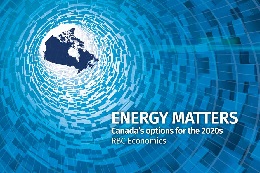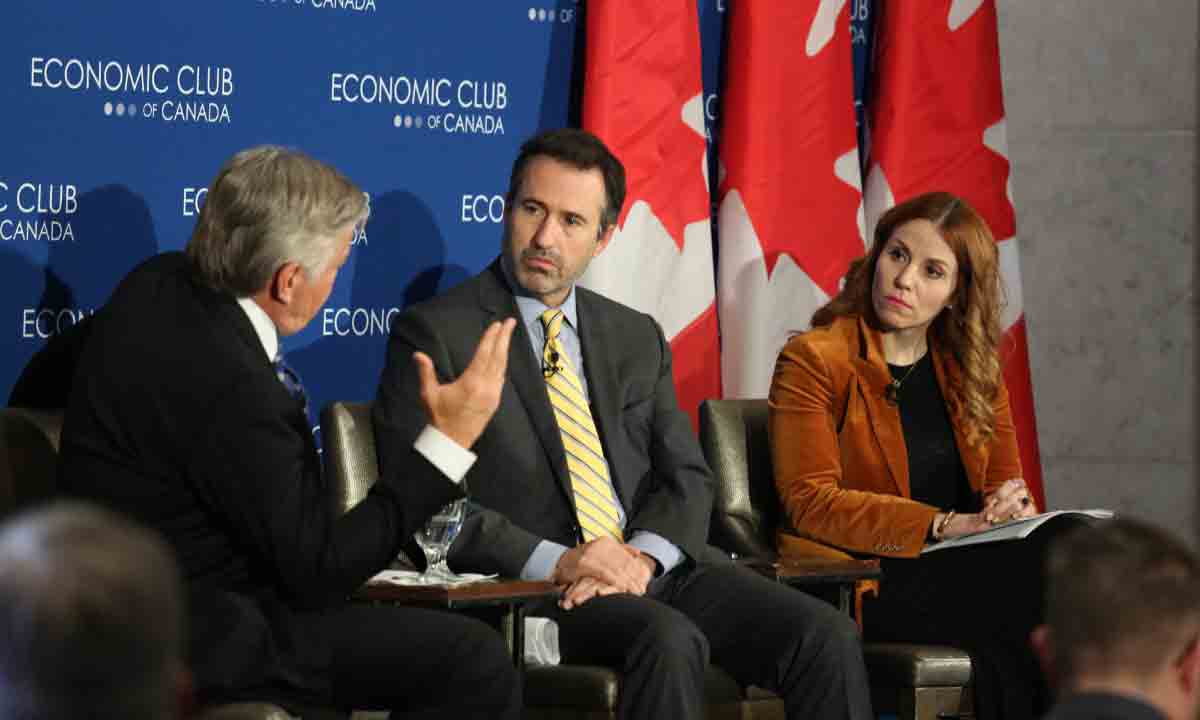The next few months will help answer that question, and will be among the most critical in decades as we try to find ways to cross the red, blue, orange and green lines we’ve drawn.
As fraught as it seems, this is a historic moment for a global energy power like Canada to transform the way we produce, ship and consume energy in all its forms to not only reduce our carbon footprint but show the world what’s possible.
Critically, we need a concerted effort — call it a national science project — to ensure that we’re leading the next energy revolution by investing aggressively in energy innovation.
That means investing in our oil and gas sector, which accounts for nearly 5% of the world’s output, to help transform the other 95%. As Calgary’s Mac van Wielingen likes to say, we need to ensure the world’s last barrel of oil is its best barrel — and that it’s a Canadian barrel.
On Monday, I shared a stage at the Economic Club of Canada with van Wielingen , who’s the founding partner of ARC Financial, the largest energy-focused private-equity firm in Canada. He’s among the pioneers of 21st century Canadian energy.
What van Wielingen sees happening in Alberta frustrates him: pipeline delays, job losses, international investors exiting the oil sands, and the industry’s image being tainted, which he attributes to a “hostile” approach to the energy file.
He’s not alone in his sense that Canada can, and should, be doing better: a recent Nanos poll showed nearly half of Canadians believe the country is doing a poor or very poor job of developing a shared, long-term vision for energy.
But even at our lowest point, there’s an emerging view of a middle ground.
“There is a positive side,” van Wielingen said. “Our environmental performance has improved significantly in response to the criticism of environmental activists.”
We need our oil and gas sector to be a central part of a cleaner energy future; most of us rely too much on traditional energy sources to pretend otherwise. What’s more, we need to harness those resources to invest in new technologies.
It’s why we need to reframe this conversation as a Canadian project — our moon shot for the 2020s — to develop the innovative technologies that can help us make the transition to a lower carbon economy and export them to the world. That work can take place across the country; indeed it has to, from the AI hubs of Montreal to the tech clusters of Vancouver to the science labs of Calgary, if we’re to develop breakthrough ways to cut carbon emissions from the oil and gas we’re already producing.
That approach helped big oil sands projects like Fort Hills develop innovative techologies to cut their emissions per barrel by roughly 50%.
Canada’s oil and gas sector is the biggest investor in clean tech in Canada. It has long time-frames, a deep balance sheet, and impressive expertise. In 2017, Canada exported more than $12 billion in environmental and clean tech products and services, a 50% increase from a decade earlier.
Over the coming years, we will need to channel billions of dollars of additional R&D to improve the ways we produce oil and gas, and enhance the ways we heat our homes, transport ourselves and grow and ship our food.
Canadians clearly want new ways to fight climate change, and every Canadian will need to be involved.
For more on the challenges and opportunities facing Canada, download our new RBC Economics report: Energy (Still) Matters.

Read the Full Report
For more insights about social, economic and technological trends, please visit the RBC Thought Leadership website.
This article is intended as general information only and is not to be relied upon as constituting legal, financial or other professional advice. A professional advisor should be consulted regarding your specific situation. Information presented is believed to be factual and up-to-date but we do not guarantee its accuracy and it should not be regarded as a complete analysis of the subjects discussed. All expressions of opinion reflect the judgment of the authors as of the date of publication and are subject to change. No endorsement of any third parties or their advice, opinions, information, products or services is expressly given or implied by Royal Bank of Canada or any of its affiliates.



















